The post A Global Push for Family Care: Securing a Strong UN Resolution on Early Childhood Development appeared first on Hope and Homes for Children.
]]>This September, the United Nations General Assembly (UNGA) will adopt a critical Resolution on Early Childhood Development (ECD), and we, together with our partners and allies are leading the charge to ensure it paves the way towards strong commitments for the end of child institutionalisation and the prioritisation of family-based care systems worldwide.
Hope and Homes for Children, alongside 13 partner NGOs, has launched a new report, The Right to a Good Start in Life, highlighting the vital link between Early Childhood Development (ECD) and family care. The report stresses that nurturing family environments are essential for children’s emotional security, cognitive growth, and overall well-being. It exposes the harm caused by institutionalisation and calls for urgent reforms towards family-based care systems such as foster and kinship care.
Three key points from the report:
- Family life is fundamental for safe and healthy early childhood development and emotional security.
- Institutionalisation causes significant harm to young children and must be eradicated in favour of family-based care.
- Strengthening families through social protection, mental health support, and inclusive services prevents separation and promotes child well-being.
Why Early Childhood Development Matters
The first 8 years shape a child’s future – and their brain development, emotional health, and lifelong opportunities depend on nurturing family care. Yet:
- 5.4 million children live in institutions globally, often suffering developmental delays, trauma, and isolation.
- Children deprived of family care during this critical period miss out on the foundational support that nurturing family environments provide
- Institutionalisation in the early years often results in developmental harm, as it lacks the secure emotional attachments and personalised care essential for healthy cognitive, social, and emotional growth.
- This can have lasting negative effects throughout childhood and beyond, including increased vulnerability to stigma, discrimination, and poor mental health outcomes.
The 2025 UN ECD Resolution is a turning point.
We are fighting to ensure it:
- Recognises institutionalisation as a violation of children’s rights.
- Commits governments to reforming child care systems
- Supports sustained investment in family support measures to keep families together.
Our Advocacy: From Grassroots to the UN
1. Influencing Global Policy
We work with UN Treaty Bodies like the Committee on the Rights of the Child (CRC) to advance the care reform agenda, and hold governments accountable. Recent wins include:
- 2024 HRC Resolution on Inclusive Social Protection.
- 2019 UNGA Resolution on Children Without Parental Care.
2. Amplifying Lived Experiences
At the March 2024 Human Rights Council Annual Day on the Right of the Child side-event we co-hosted with partners, young people who grew up in institutions shared how family separation impacted them, powering our call for care reform.
3. Launching the Evidence: The Right to a Good Start in Life
Key findings from our new report (endorsed by 14 organisations):
- Family bonds build resilience, learning, and emotional security.
- Institutions harm children, even those with “good or quality” conditions.
- Solutions exist: Foster care, kinship care, and parent support programs work.
2025: A Pivotal Year for Care Reform
At a time when ODA cuts and de-prioritisation of child rights, development and cooperation risk putting the lives of millions of children at risk, we must redouble our efforts to progress and advance our cause. Despite the complex international landscape, there are promising opportunities:
September 2025 – UNGA Resolution
We are advocating with partners for the ECD Resolution to:
- Link ECD and family care explicitly.
- Support the Global Charter on Care Reform, set to be launched at UNGA
November 2025 – World Social Summit
We will advocate for:
- Care reform in the SDGs.
- Funding shifts from institutions to family support.
November 2025 – South Africa’s Leadership & G20
With the G20 hosted in South Africa—a country advancing ECD policies—we’re seizing this moment to drive global action.
The post A Global Push for Family Care: Securing a Strong UN Resolution on Early Childhood Development appeared first on Hope and Homes for Children.
]]>The post Annual Day on the Rights of the Child 2025: Making early childhood development central for the best start in life and preventing child institutionalisation appeared first on Hope and Homes for Children.
]]>This 12 March, as the child rights community prepares to celebrate this year’s ADRoC and the chosen theme of early childhood development (ECD), Hope and Homes for Children and our partners – Child Rights Connect, the Early Childhood Development Action Network (ECDAN), Family for Every Child, the Learning for Well-Being Foundation, Lumos, Defence for Children International (DCI), the Child and Youth Friendly Governance Project, Make Mothers Matter, and the Moving Minds Alliance, are co-hosting the side-event ‘Making Early Childhood Development Real: Stories from Grassroots to Government Action’ at the United Nations premises in Geneva.
The hour-long hybrid event will bring together ECD experts, policy-makers, children with lived experience and parents for a rich discussion on the crucial link need to support early childhood development to ensure children’s continued well-being and future outcomes within a safe, loving family environment. The discussion will tackle multiple aspects of the development of cohesive policies and programmes to support young children and their families in their foundational early stages of development. By including specific and concrete needs of children with disabilities and children in emergency contexts, linking ECD with the wider themes of inclusive social protection and family strengthening, this side-event will cover a broad range of interlinked policy issues that need tackling to ensure the best start in life for all children.
To join the livestream of our side event this 12 March, from 13.00 to 14.00 CET, please follow this link (Number: 2742 125 5977 – Password: 9pfRRfAzg33)
To access the side event agenda and invitation, please click here
To know more Hope and Homes for Children’s United Nations and Human Rights Council advocacy, please click here
To know more about the 2025 Human Rights Council Annual Day on the Rights of the Child, please click here
The post Annual Day on the Rights of the Child 2025: Making early childhood development central for the best start in life and preventing child institutionalisation appeared first on Hope and Homes for Children.
]]>The post “Zelensky’s ambition is to eliminate children’s facilities while he is President.” appeared first on Hope and Homes for Children.
]]>We reflect upon the week of the Ukraine Recovery Conference, why there’s hope for Ukraine’s care reform process, and how domestic political will and international attention has galvanised into commitment to all Ukrainian children growing up in safe, loving families.
The Ukraine Recovery Conference 2023 was co-hosted in London by the Governments of Ukraine and the United Kingdom. Focusing on rebuilding the war-torn country both physically and socially, the conference and associated events were an opportunity for the Government of Ukraine to outline its reconstruction plans. These included an ambitious care reform agenda, and an appeal to international donors to support this process.
We’ve been working in the run-up to the conference, in Ukraine and internationally, to ensure the international attention focused on Ukraine turns into tangible support for an inclusive, sustainable care reform process. In late June, alongside 16 organisations including Save the Children, Lumos, Disability Rights International (DRI) and Human Rights Watch, we published joint recommendations on the reform of Ukraine’s child protection and care system.
Mykolayivka Special Boarding School of General Education, Ukraine, 2016 Photo credit: Aleksandr Glyadyelov.
Securing political will and commitment to care reform
One essential element of making change happen is ensuring the political will to change is unmistakeably there.
The day before the conference, Chatham House hosted a dedicated ‘Road to URC 2023’ event, for civil society to discuss its vital role in Ukraine’s recovery. At the event, Yulia Sokolovska, Deputy Head of the President’s Office of Ukraine, highlighted the level of political support for the care reform agenda by saying “the President’s (Zelensky’s) ambition is to eliminate children’s facilities while he is President.”1
At the conference itself, one session on ‘Human Capital’ had significant focus on care reform. Minister for Social Policy, Oksana Zholnovych, and UNICEF Deputy Executive Director for Partnerships, Karin Hulshof, highlighted the importance of their Better Care agenda, while Darya Kasyanova, Chair of the Ukrainian Child Rights Network, outlined why the need for care reform is so urgent. UK Minister for Development, Andrew Mitchell, referenced the UK’s commitment to supporting Ukraine’s care reform agenda “working to ensure that each Ukrainian child, including children with disabilities, has the opportunity to live in a nurturing family.”2
To secure such consistent commitment to reform on a public stage was a huge step forward. But there was more to come.
"We must make sure every child in Ukraine has the opportunity to be raised in a family."
– Minister Oksana Zholnovych at the Ukraine Recovery Conference side event
International support for a Ukrainian vision of the future of child protection
After the conference, alongside UNICEF, Lumos and the Foreign, Commonwealth and Development Office (FCDO) and the Government of Ukraine, we hosted a side event dedicated specifically to the care reform agenda. Here, Minister Zholnovych presented Ukraine’s ambitious Better Care agenda, and called for all those in the room to join Ukraine and publicly commit to supporting the reform process.
The call was answered by Denise Brown, UN Humanitarian Coordinator for Ukraine, who spoke of the UN’s commitment to supporting the Government of Ukraine’s journey towards care reform and Danae Dholakia, UK Special Envoy for the Ukraine Recovery Conference, who reiterated the UK’s ground-breaking 2018 commitment to support global care reform efforts.
Ukraine’s accession to the European Union
The role of the European Union (EU) in Ukraine’s reform process is key, particularly in the context of Ukraine’s accession journey. The Vice President of the European Commission, Dubravka Šuica, made clear that the EU is ready to rise to this challenge.
“The quality and success of the deinstitutionalisation…will be an important benchmark for measuring Ukraine’s preparedness for accession.”3
– Dubravka Šuica, Vice President of the European Commission
Building back better – together
The clear, public alignment between speakers that ‘the time for reform is now’ is a source of genuine hope that we can make real progress together. In a moving speech, Baroness Helena Kennedy made parallels with the UK’s recovery from World War II, building a stronger social protection system in the aftermath of destruction.
Tellingly, none shied away from the scale of the challenge; all were clear that the Government of Ukraine is not alone in this process. UNICEF is supporting the Government to develop its Better Care agenda. Philippe Cori, Regional Director for Europe and Central Asia, gave a powerful speech highlighting what will be needed to make this reform a success, including support for the social workforce and concrete funding commitments.
Indeed, it is only active involvement from Ukrainian civil society experts can ensure that this reform process is sustainable and inclusive. Halyna Kurylo, of DRI, emphasised the importance of the participation of children and adults with disabilities in the process. Lumos’s Yaroslav Laguta made the key point that the child, and their destiny, must be at the centre of reform. Kasyanova willed all involved to consider more than recovery, and focus instead on development – building a better system than before.
With private sector support also crucial for Ukraine’s recovery, our own CEO Mark Waddington outlined the importance of private sector and civil society collaboration, to ensure resources are allocated towards sustainable, inclusive reform.
This moment was a product of amazing co-operation. Governments, multilateral institutions and civil society came together as partners to present a clear, aligned position on Ukraine’s care reform. This demonstrates we can move closer to a future where no child in Ukraine grows up missing the love and security of a family.
1 – Chatham House – Shaping the New Ukraine – Human capital: healing, reintegration, empowering 1:21:10 https://www.youtube.com/watch?v=6Qek2xP1iEc&list=PLy9ppGFZeRr5N6q5xqrkKYcLtaciG_YXy&index=3
2 – Ukraine Recovery Conference 2023, Investment in Ukraine’s Human Capital Recovery, 55:47 https://www.urc-international.com/ukraine-recovery-conference-urc-2023
3 – https://www.eeas.europa.eu/delegations/united-kingdom/eu%E2%80%99s-support-ukraine%E2%80%99s-comprehensive-child-care-and-child-rights-reform_en
Ukraine Crisis Appeal We need your help
By giving to our regional response across Ukraine, Moldova, and Romania you can help protect children and families right now, and in the aftermath of this war.
The post “Zelensky’s ambition is to eliminate children’s facilities while he is President.” appeared first on Hope and Homes for Children.
]]>The post World Refugee Day and Week: Celebrating hope away from home appeared first on Hope and Homes for Children.
]]>Photo credits: Ioana Moldovan / Hope and Homes for Children
20 June is World Refugee Day, a day of solidarity for displaced people around the world. Along with an inspiring story of a teenage refugee from Ukraine, we’re sharing some need-to-know facts on the refugee crisis, how it affects children, and how we can offer them ‘hope away from home’ – this year’s theme for World Refugee Day.
“I couldn’t believe it, even with the sirens blaring. I just laughed nervously. I told myself it was impossible.”
These are the words of Daryna*, a 17-year-old girl who was living inside a Ukrainian orphanage when Russia declared war on her country.
Almost overnight, Daryna’s life changed forever. Within a few weeks, she was evacuated across the border into Romania for safety. A teenage girl, already separated from her family and isolated in an orphanage, now a refugee.
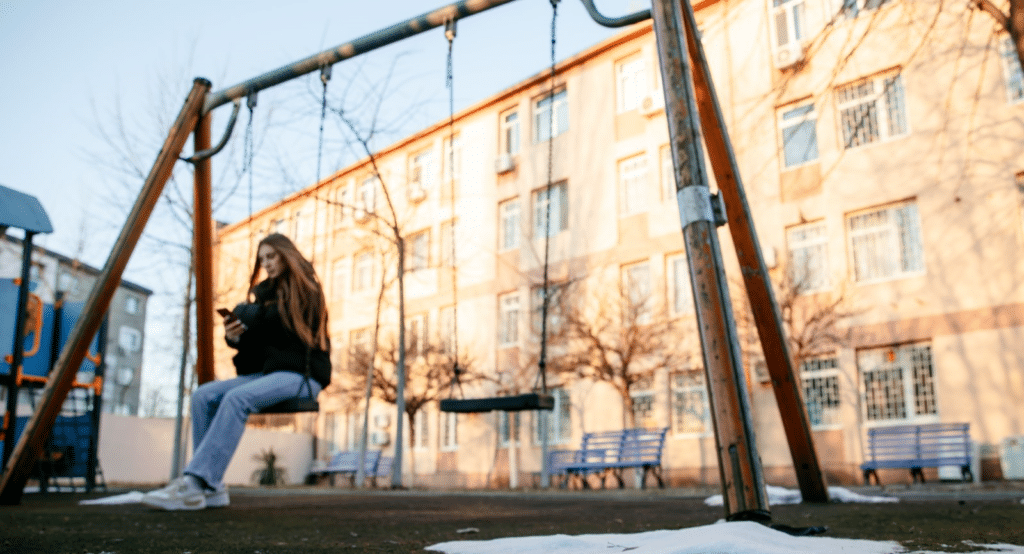
Photo credit: Ionut Stoica/Hope and Homes for Children
The Russian invasion of Ukraine has created the largest displacement of humans in Europe since the Second World War. But tragically, it’s just one of the latest chapters in the defining humanitarian disaster of our time: the refugee crisis.
So today, on World Refugee Day, we’re standing shoulder-to-shoulder with the displaced children, adults and families of the world.
Because we know that every child, no matter who they are or where they’re from, deserves to grow up in a safe, loving home.
But before we go any further, let’s start with the facts.
Need-to-know facts on the refugee crisis
From Syria to Venezuela, Afghanistan to Ukraine, innocent people across the globe are being forced to flee their homes due to war, persecution, famine and the climate.
Make no mistake – as parts of a global community, the refugee crisis affects us all.
- As of the end of 2022, there are an estimated 108.4 million displaced people around the world, and 35.3 million of them are refugees. And that’s just a rough estimate. The reality is likely far greater.
- But that’s not all – there’s a scarier statistic hidden inside that figure. The UNHCR estimates that there are 43.3 million children who’ve been forcibly displaced, whether it’s in their only country or across the border.
- And it’s getting worse. Every year, an estimated 385,000 children are born into displacement. That’s a whole generation growing up without a home.
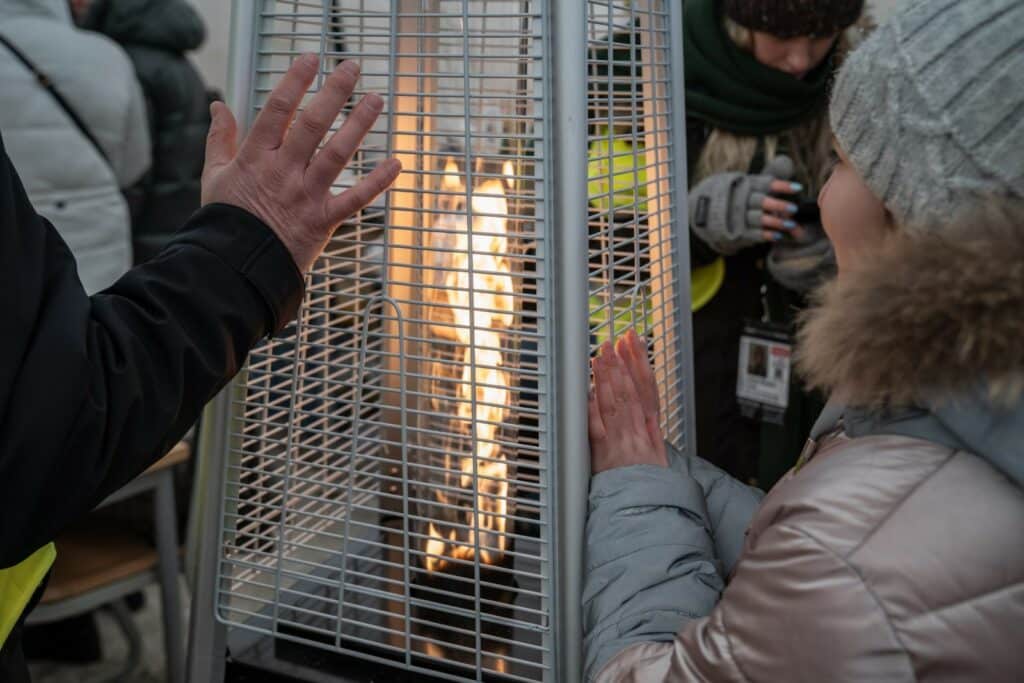
Photo credit: Ioana Moldovan/Hope and Homes for Children
How does the refugee crisis impact children?
It goes without saying – when children’s families are uprooted, the outcomes are severe.
Shockingly, around 40% of the world’s displaced people are children. Let that sink in.
From the traumas of leaving home to the dangers of crossing borders, displacement is a horrific experience for a young person – one that Daryna was forced to endure.
Shortly after Russia invaded, she was evacuated to Bucharest alongside 16 other children from her orphanage. They were accompanied by two Ukrainian teachers who volunteered to take them out of Ukraine along with their own families.
“In total, the trip took us around 20 hours. It was so difficult. I was terrified and exhausted. But mostly I was scared about bombs dropping on us. It was a long and hard journey.”
Daryna, like millions of other refugees, was fleeing a warzone. To get to safety, they have to embark on an equally dangerous journey – another traumatic experience.
On their way, displaced young people are vulnerable to abuse, exploitation from smugglers, or even sexual and gender-based violence.
Tragically, this journey never really ends. Even when they arrive at their destination, the threat of abuse and neglect lingers.
Why are refugee children at high risk of being institutionalised?
When communities break down and families are torn apart, children are at risk of being placed into orphanages.
This is especially true for unaccompanied children. Without family to protect them, they can be abandoned, abused, or trafficked.
When host countries don’t have the right set-up to care for these children, they often resort to institutionalised care.
Refugee camps, detention centres and orphanages are all extensions of the institutionalised care system, which as we know, is no place for a child
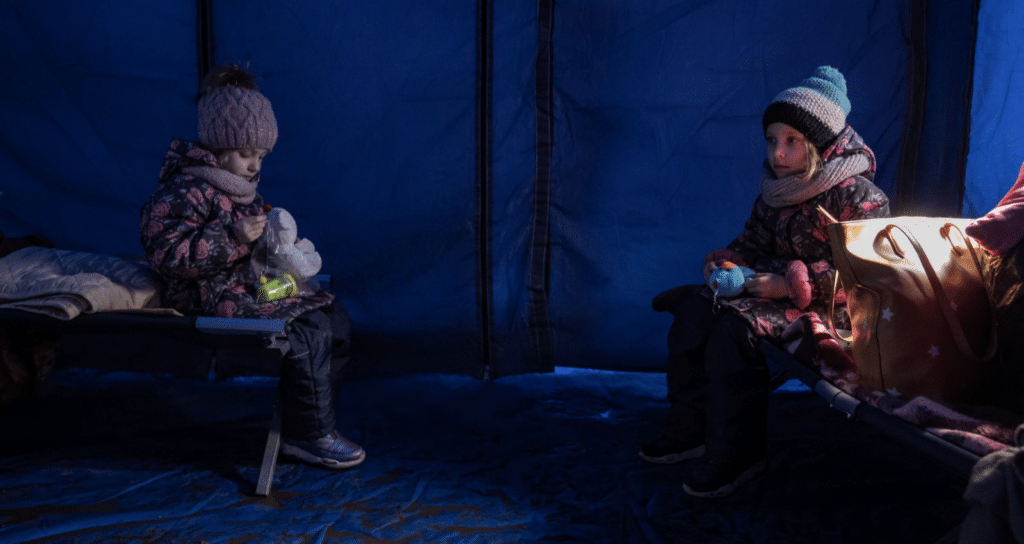
Photo credit: Ioana Moldovan/Hope and Homes for Children
That’s why we’re fighting to keep families together, particularly in times of crisis. Because we know orphanages are never the answer. Children deserve families, children deserve homes – especially when the world has taken that away from them.
How are we helping?
Since Russia invaded Ukraine, we’ve mobilised our teams in Ukraine, Moldova and Romania to protect displaced children from orphanages.
We’re no humanitarian organisation. But the efforts of our teams have been astounding. You can read more about our work in our Ukraine: One-Year-On Response Report. As of January 2023:
- In Ukraine, we’ve supported over 69,000 adults and children, providing counselling and medical aid to over 21,000 displaced children.
- In Moldova, we’ve provided help to more than 3,500 children and adults fleeing the war in Ukraine.
- In Romania, our team helped over 7,800 refugees, around 2,700 of them children, with anything from counselling to supporting their living expenses – just like we did for Daryna.
Upon arrival in Romania, Daryna and the 16 other children from her orphanage were welcomed into an emergency child protection centre – a former orphanage which we closed in 2019.
“It was around midnight when we got in, but we were surprised to find all the Romanian staff were there waiting for us. They’d been waiting for us for 20 hours; they hadn’t gone home.”
Thanks to our supporters, we’ve been covering all their living expenses, from food and clothes to school supplies and medicine. As well as supporting their hobbies and interests.
Our work is essential to ensure young refugees like Daryna don’t fall through the cracks. It’s one thing to have a house. It’s another to be safe, continuing your education and having a chance to grow up happily.
How can you help?
World Refugee Day brings essential attention to the refugee crisis. But for displaced people around the world, solidarity is needed every day of the year.
We’re all part of a global community, a world-wide family. We know that every person out there has a right to a home and a right to safety.
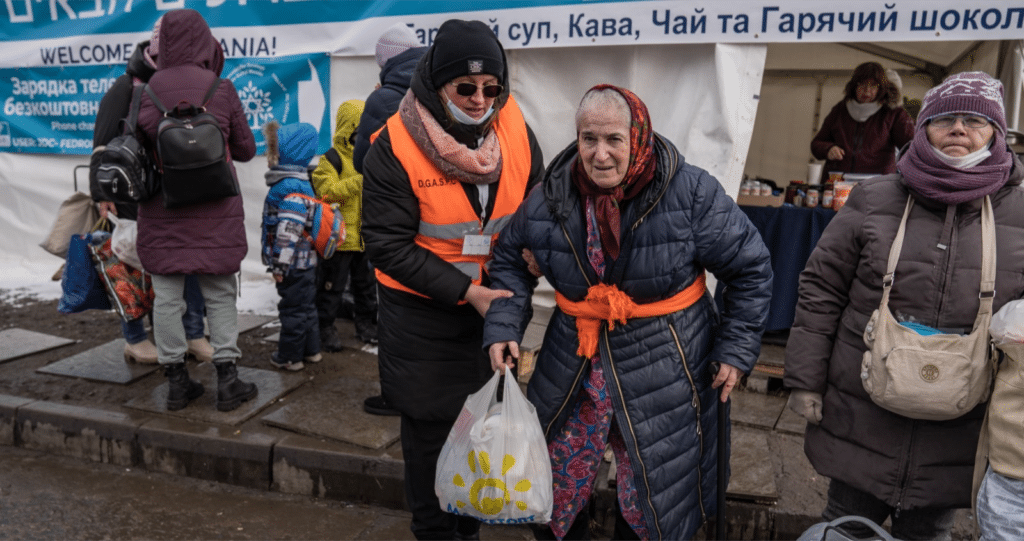
Photo credit: Ioana Moldovan/Hope and Homes for Children
Sometimes, we can help by voicing our support. Just like two young Romanian boys did for Daryna when she arrived in her new home.
“When we’d nearly reached Bucharest, our bus stopped at a gas station. There were some young Romanian boys outside who heard us speaking Ukrainian.
Suddenly, they started shouting ‘Salvează Ucraina!’ That means ‘Save Ukraine!’
They gave us money, saying ‘Please, take it if you need it.’
Then, they said ‘We are with you. We stand with you.’”
In that moment, Daryna was given a glimmer of hope away from home.
Thanks to the welcoming of those boys, she knew that she mattered. Even when the world has taken her home away from her, a new one can be created.
Hear the rest of Daryna’s story, in her own words
Hope away from home
Daryna’s just one of millions of children who’ve experienced the harsh realities of forced displacement. Each of them has lost their homes, each of them has a story to tell, and each of them matters.
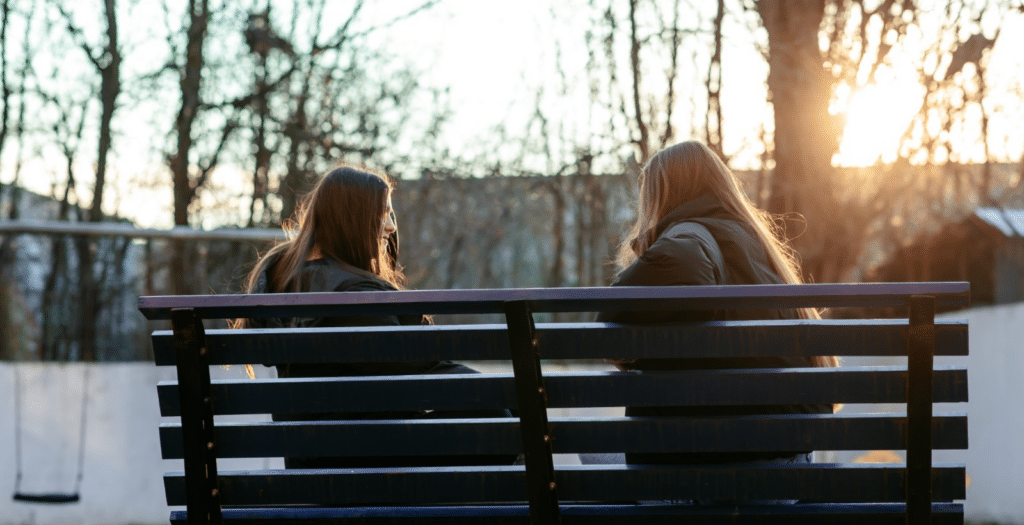
Photo credit: Ionut Stoica/Hope and Homes for Children
On World Refugee Day, let’s champion the rights, strength and resilience of refugee adults and young people all around the world.
Let’s come together and echo the words of the young Romanians who welcomed refugees into their country:
“We are with you. We stand with you.”
Together, we can offer them hope away from home.
If you’d like to help us continue providing essential support to young people like Daryna, please donate today.
Donate to support our work in Ukraine
*Name changed to protect identity
The post World Refugee Day and Week: Celebrating hope away from home appeared first on Hope and Homes for Children.
]]>The post Our work at the United Nations Part 3 – building in accountability to children appeared first on Hope and Homes for Children.
]]>Accountable to children: young people’s voices
It’s central to our strategy to ensure we, and everyone involved in transforming care systems, are accountable to the young people and families who are affected by their decisions. One way we look to do this is through enabling young people to influence policy making at the highest level.
For example, our group of young advocates from Bulgaria submitted a report they had written to the UN Committee on the Rights of the Child. Ensuring that the voices of care-experienced young people come across clearly in our UN advocacy represents a shift in the role of children and young people at the highest level., And we’re keen to replicate this success in wider policy formation.
Care leavers leading the discussion at the UN
In 2021, the UN Committee on the Rights of the Child held a Day of General Discussion (DGD) on Children’s Rights and Alternative Care.
The overall purpose of the DGD was to examine the current situation regarding alternative care and identify and discuss particular areas of concern and appropriate ways to respond to family separation in cases where it was unavoidable.
It was vital that the voices of care leavers were part of this discussion, because decisions about the best ways to care for children and young people are too often made without their involvement. We supported the DGD to ensure that more than half the speakers had some form of care experience, as well as involving a group of 30 children and young people in the design, delivery and reporting on the day.
The DGD represented an opportunity for the Committee to send a clear message about supporting children in their families and communities, promoting the transformation of national care systems and phasing out orphanages. You can read more about this in our blog : “Put the money where the love is” – Reflections on the UK Day of General Discussion
The outcome: Real progress towards a global consensus that orphanages are unacceptable
In 2019, the United Nations General Assembly Resolution on the Rights of the Child focused on children without parental care. The resolution represents real progress because it gives us a new global consensus—commitments that all countries of the world have agreed to. You can read more about our engagement with the resolution and the work with our partners in this blog : A world without orphanages is possible
Recent media coverage and dedicated support from partners like UBS Optimus Foundation and Players of the People’s Postcode Lottery also mean that our mission is reaching, and engaging, a global audience.
With this consensus, increased engagement at all levels, and our and partners’ commitment to ending the institutionalisation of all children around the world, we’re keeping child protection system reform high on the international agenda.
Part 2 – The Treaty Body Process
Read my previous blog about working through the treaty body process
Our work at the United Nations – Part 2 –the treaty body process
The post Our work at the United Nations Part 3 – building in accountability to children appeared first on Hope and Homes for Children.
]]>The post Our work at the United Nations – Part 2 –the treaty body process appeared first on Hope and Homes for Children.
]]>Working with partners in the UN to bring about the global elimination of institutional care of children requires several different approaches.
How the treaty body process can help to eliminate orphanages
The treaty body process is a little different to the Universal Periodic Review (UPR). Each UN human rights convention has a committee of experts, who review each country that has signed the convention. This happens once every 5-7 years. At the end of the review process, the Committee makes recommendations to each country on how they can improve human rights under the relevant convention.
We engage two UN Committees to help countries advance their deinstitutionalisation practices:
- The UN Committee on the Rights of the Child – linked to the Convention on the Rights of the Child (UNCRC)
- The UN Committee on the Rights of Persons with Disabilities – linked to the Convention on the Rights of Persons with Disabilities (UNCRPD)
These two conventions are the most relevant to us. The UNCRC is the main convention that provides the global framework for the care, protection and participation rights of children. The UNCRPD is important because in many countries children with disabilities are overrepresented in institutions and protecting their rights is paramount.
Children with disabilities are overrepresented in institutions
1 in 3 children in institutions are disabled
P.S. Pinheiro, ‘World Report on Violence against Children’, United Nations Secretary General’s Study on Violence against Children, 9/27, 16/53/57/58/59 (2006)
The Convention on the Rights of the Child and Ukraine – a case in point
Over the past three years we’ve provided three alternative reports to the Committee on the Rights of the Child in anticipation of the review of Ukraine. The review was delayed for two years due to COVID, and took place six months after the 2022 invasion by Russia.
In our three reports, we documented:
- the number and conditions of children in Ukraine’s vast network of over 700 institutions,
- the over diagnosis of very young children leading to their institutionalisation
- a list of questions about the care and protection of children in all forms of alternative care during the conflict.
The session was very informative, with the government providing valuable insights into the child protection system. The Committee noted that the system of institutions was in need of urgent review and may not be in keeping with international human rights obligations.
Children with Disabilities are grossly overrepresented in orphanages
The other treaty body that we work with is the UN Committee on the Rights of Persons with Disabilities. This is because children with disabilities are significantly over-represented in institutions around the world.
Like the Child Rights Committee, the Committee on the Rights of Persons with Disabilities reviews signatory countries’ performance every few years. It has also produced guidance on how signatories should approach deinstitutionalisation. Alongside many of our partner organisations, we fed into those guidelines, drawing on our extensive hands-on experience of delivering child protection system reform over the last 28 years.
Read the Guidelines on deinstitutionalization, including in emergencies (2022)
Including care-experienced young people
As part of the consultation process, we supported a young care leaver with disabilities from Rwanda to speak at one of the global consultations. They shared their experience of growing up in an orphanage, and returning with community support to their own family.
Hard questions lead to real opportunity for change
During August 2022, the Committee on the Rights of Persons with Disabilities held a special session on the situation in Ukraine and the Russian aggression. Neighbouring countries including; Bulgaria, Italy, Finland, Latvia, Lithuania, Turkey, Republic of Moldova and Belarus, as well as the European Union also attended.
We provided a set of questions and background documents to the Committee about the situation of children with disabilities in institutions in Ukraine. As part of the questions put to the Government of Ukraine, the Committee asked:
- Were international funds being used to renovate or build institutions?
- Did the Government of Ukraine have sufficient plans in place for the care and protection of all children with disabilities in institutions?
- Was there a system in place to monitor all children with disabilities from institutions – who either left the country, are internally displaced or are being cared for in neighbouring countries’ alternative care systems?
This information we got from this was crucial. Without the evidence and expertise provided by our local teams in each country, it would be so much harder to hold countries to account like this on progress towards the aims of the conventions.
Following the session, the Committee issued a report on their discussions. Civil society organisations, the wider UN system and humanitarian organisations are using the report to help them prioritise areas of change and immediate actions. The Ukraine Government is also using the report to understand its obligations and to adjust policy and practice. Critically, it’s using the report to begin to systematically monitor the number of children with disabilities in institutions, through the development of a comprehensive child protection system.
In the final part of this series, I’ll be explaining how we work to ensure that children’s voices are heard at the highest level, so the systems and decisions which most affect their lives have some level of accountability to them.
Part 2 – The Treaty Body Process
Read my previous blog about working through the treaty body process
Our work at the United Nations – Part 2 –the treaty body process
The post Our work at the United Nations – Part 2 –the treaty body process appeared first on Hope and Homes for Children.
]]>The post Our work at the United Nations – making change happen at the Human Rights Council appeared first on Hope and Homes for Children.
]]>In today’s blog, I’ll be explaining how we work with the Human Rights Council. And later in the week I’ll be talking about the treaty body process (part 2) and increasing accountability to children (part 3).
Ensuring governments commit to change
What is happening inside orphanages today, now, is impacting 5.4 million children, leading to lifelong consequences that impact upon the next generation too.
Orphanages confine and regiment the lives of children in ways that dramatically increase the threat of abuse and neglect.
In a recent study…
> 0 1 2 3 4 5 6 7 8 9 0 0 1 2 3 4 5 6 7 8 9 0 %
Over half the children in institutional care had experienced physical or sexual abuse. (1)
To end this outdated and harmful practice, and transform systems so that no child has to suffer the harm associated with institutionalisation, we must not only change practices on the ground, but ensure states are held accountable to honouring children’s right to family life at the highest level.
This is where our advocacy work comes in.
For the last six years, my colleagues and I in the global advocacy team have worked with partners and United Nations (UN) experts to bring about the global elimination of institutional care of children. We do this through engaging with United Nations systems in a number of ways: through treaty bodies; the General Assembly and the Human Rights Council. Through United Nations resolutions, we seek political commitment to end the use of orphanages, globally. At the same time, we ask the UN Human Rights Mechanism to hold states accountable to those commitments.
Our successes at the Human Rights Council
The UN Human Rights Council is a United Nations body whose mission is to promote and protect human rights around the world. It has 47 elected members who serve three-year terms, and is based in Geneva in Switzerland.
At the Human Rights Council (HRC), we work in two ways:
- Firstly, we engage with the development of relevant resolutions of the HRC;
- And secondly, we’re involved with the Universal Periodic Review (UPR) process.
1) Influencing HRC resolutions
As an example, in 2019, we were part of global advocacy efforts to ensure that child protection system reform was central to the final text of the Annual Day on the Rights of the Child Resolution at the Human Rights Council. This resolution was about empowering children with disabilities for the enjoyment of their human rights, including through inclusive education. Read that resolution here.
We regularly work with partners like Child Rights Connect, Save the Children, UNICEF, Better Care Network and others on this kind of advocacy. In 2022, we advocated together for positive language on families, reunification and child protection system reform in the Annual Day on the Rights of the Child Resolution, entitled Rights of the child: realising the rights of the child and family reunification.
The language in these resolutions is so important, because it changes the mindset and discussion amongst state actors, away from acceptance of orphanages as a way to care for children, and towards family-based care.
The wording of these resolutions is an indication that we are winning the argument that orphanages are unacceptable.
2) Working through the Universal Periodic Review Process
The Universal Periodic Review (UPR) process is a review of how each UN member state fulfills its human rights obligations and commitments. It happens every 4.5 years, and is an inclusive process – this means that UN entities – such as UNICEF, UNDP and the World Health Organisation (WHO), as well as civil society organisations such as Hope and Homes for Children and other UN member states – are involved. Unlike the treaty body process, the UPR process is led by UN member states, not committee members.
In 2022, we’ll submit our first country alternative report to the UPR. A Country alternative report is a short document written by us, that outlines
- the current state of child protection system reform in a country,
- any associated human rights violations
- wording for recommendations that could be used by UN member states when making recommendations to countries under review.
The Country under review is obliged to act on those recommendations and is supported by the UN system to help them achieve those goals.
We hope that other UN member states and UN bodies such as UNDP and UNICEF, will provide capacity-building support to the country under review, to bring about comprehensive child protection system reform.
Part 2 – The Treaty Body Process
Read my previous blog about working through the treaty body process
Our work at the United Nations – Part 2 –the treaty body process
Footnotes
(1) From C. L. Gray and others, ‘Prevalence and Incidence of Traumatic Experiences Among Orphans in Institutional and Family-Based Settings in 5 Low-and Middle-Income Countries: A Longitudinal Study’, Global Health: Science & Practice, 3 (2015a), 395–404 <https://doi.org/10.9745/GHSP-D-15-00093>.
The post Our work at the United Nations – making change happen at the Human Rights Council appeared first on Hope and Homes for Children.
]]>The post Global Disability Summit:<br>Leave no child behind appeared first on Hope and Homes for Children.
]]>Four years ago, the first Global Disability Summit was held in person in London, co-hosted by the UK and Kenya. This time, in a changed world, Norway and Ghana will welcome participants to a virtual event with an ambitious agenda. Its purpose? To draw attention and secure commitments related to the implementation of the UN Convention on the Rights of Persons with Disabilities and the promise world leaders made in the 2015 Sustainable Development Goals to ‘leave no one behind.’ A common thread running through the agenda is that adults and children with disabilities have been among the most impacted by COVID-19 and that they should not be left behind as countries continue to tackle the economic, social and health impacts of the pandemic.
At Hope and Homes for Children, we know that around the world, children with disabilities are disproportionally placed in institutions. Even in countries that have reduced the number of children in institutions, children with disabilities often remain institutionalised, or they get left behind in the care reform process that sees other children return to family care. Children with disabilities are separated from their families due a range of factors, often due to discrimination, social exclusion and the lack of available support. Once institutionalised, they are at higher risk of violence, neglect and poor health than their peers.
International events like these matter. They provide an opportunity to bring attention to the needs and rights of a particular group and the measures that we know will help them, in our case children with disabilities in institutions or at risk of being institutionalised. They offer a forum for governments to signal their intent to act and demonstrate leadership. Perhaps most importantly, they offer an opportunity for people with disabilities themselves and others in civil society to hold governments to account for the promises they have made in the past.
At the 2018 Global Disability Summit, the UK government adopted a ground-breaking policy position on children and young people in institutions, which noted the harm of institutionalisation and stated the government’s commitment to ensuring that all children “realise their right to family care and that no child is left behind”. It committed the UK government to tackling the underlying drivers of institutionalisation and working towards the long-term process of deinstitutionalisation.
This declaration, which was unique among OECD countries as it applied to all UK government departments, established the UK as a champion of global care reform. Its principles were later incorporated into the DfID (Department for International Development) strategy on disability inclusion, and UK Aid Direct enacted a regulation against funding orphanages. UK Aid has also set a promising example through its own direct work, by funding programmes to combat institutionalisation, strengthen families and social services and reform child protection systems in several countries. In addition, in October 2019, the FCO (Foreign and Commonwealth Office) changed its travel advice for citizens to recognise the harm that can be caused by orphanage volunteering, following in the footsteps of governments such as Australia and the Netherlands.
However the early momentum in implementing this commitment appears to have slowed. Since the 2020 merger of DfID and FCO into the new FCDO (Foreign, Commonwealth and Development Office) it is no longer clear how the UK government is implementing this commitment or where responsibility for it lies.
As countries gather again for the 2022 Global Disability Summit, we call on the UK government to reaffirm this commitment and a plan for its implementation. The FCDO should take a lead role in championing and operationalising it through technical guidance and awareness raising, and by continuing to fund vital care reform and child protection systems-strengthening programmes in partner countries. Responsibility for implementing this commitment should be explicitly assigned to a Minister in FCDO, and public steps should be taken by government and Parliament to review the implementation of the statement since 2018 and re-evaluate it in light of the new realities unearthed by the Covid-19 pandemic.
For our part, at the 2018 Global Disability Summit, Hope and Homes for Children worked with our corporate partners to bring together a Taskforce of committed private sector leaders. This Taskforce facilitated a commitment to a private sector pact that expressed the Taskforce’s support for the UK government’s commitment. The signatories, who included Clifford Chance, A&O and UBS Optimus Foundation, remain committed to the Taskforce and continue to support initiatives to tackle the institutionalisation of all children around the world.
Nolan Quigley is Global Advocacy Advisor at Hope and Homes for Children
The post Global Disability Summit:<br>Leave no child behind appeared first on Hope and Homes for Children.
]]>The post “Put the money where the love is” Reflections on the UN Day of General Discussion appeared first on Hope and Homes for Children.
]]>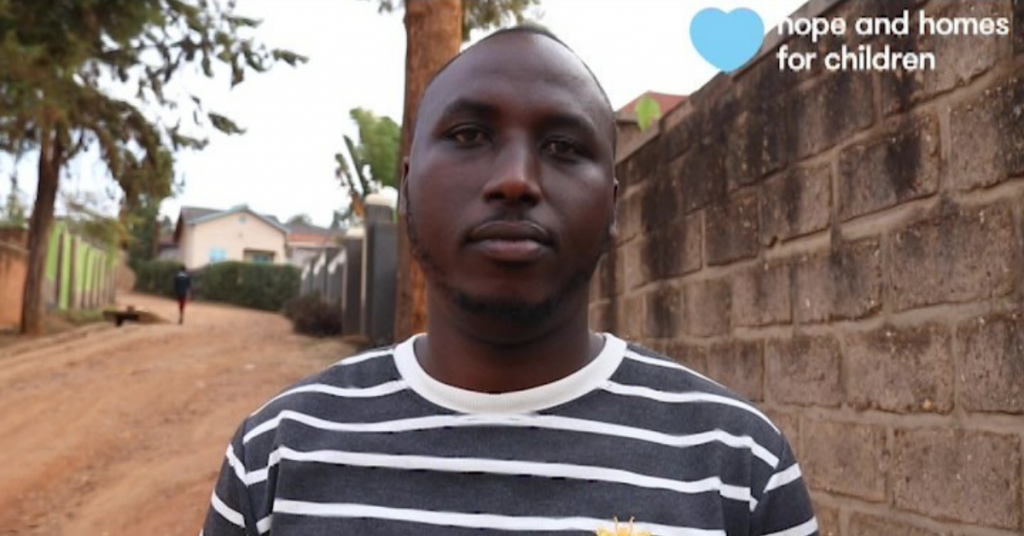
That is why the UN Committee on the Rights of the Child (CRC)’s DGD which took place this September was so important. Hope and Homes for Children are proud of the central role we took in the preparations for this important event. We worked collaboratively with other CSOs to heavily influence how it was organised, by:
- Influencing the contents preparations (concept note, guidelines for consultations, etc.)
- Contributing to shaping the programme and supporting speakers (e.g. our Country Director for South Africa, Lourenza Foghill, and a young person with disabilities from our Rwanda programme, Aime de Jesus).
- Co-leading the workstream on child and youth participation
- Supporting the organization of regional DGD Hubs (Particularly the one for East and Southern Africa)
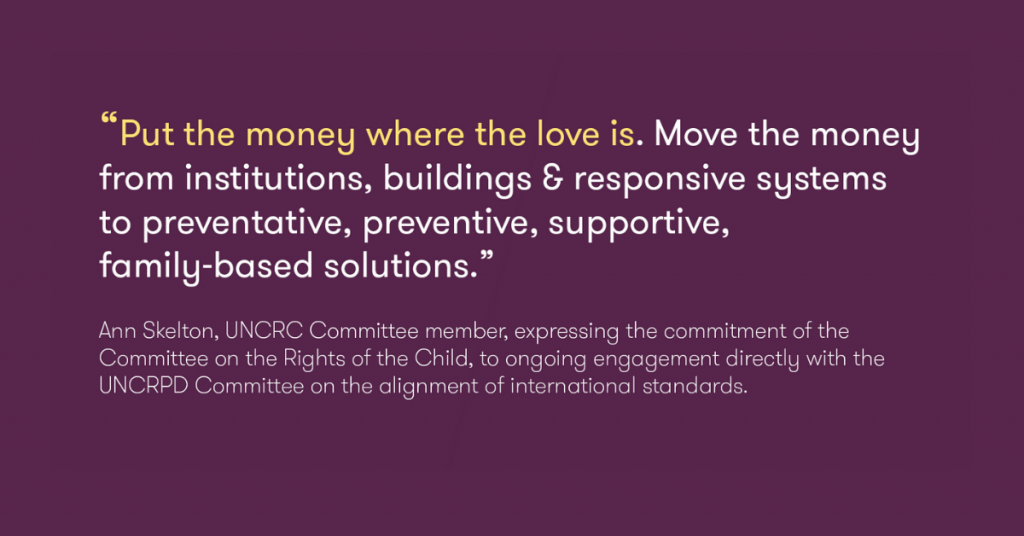
UN Convention on the Rights of the Child DGD on Children’s Rights and Alternative Care 2021
The 2021 DGD took place on 16/17 September 2021. All in all, it was a very successful event. The choice of a remote conference, despite the technical headaches, proved a winning strategy. It democratised the event and allowed for genuine participation from different world regions. The voices of children and young people were front and centre of the DGD, in a very genuine and non-tokenistic way – delivering powerful messages and testimonies directly to the UN Committee on the Rights of the Child. Preventing children from going into institutional care was one of the most important issues raised by the young people. Along with feeling loved, respected, safe and protected from abuse and violence.
Outcomes
We are delighted to have been involved in supporting children and young people in co-creating the Day of General Discussion, its working groups and individual sessions.
- More than 500 children, young people, governments, academics and experts gathered for the Day of General Discussion, including more than 200 submissions, and a global survey of children and young people with care experience, with more than 1100 responses from 50 countries. The Day of General Discussion had at least the same number of care experienced children as adults speak throughout the event – this is a unique achievement.
- Aimé de Jesus, a care leaver from Rwanda, supported by Hope and Homes for Children gave an excellent presentation, reflecting the reality that children with disabilities with the right kind of support can and should be included in deinstitutionalisation programmes. Lourenza Foghill, our regional director for South Africa, presented an expert view of the importance of prevention and building resilient communities, sharing Hope and Homes for Children’s experience in South Africa.
- Hope and Homes for Children was pleased to see that the messages of our submissions to the DGD were taken on board by members of the Committee on the Rights of the Child. These included calls for better coherence within the UN human rights system and for regional conversations among governments to follow up from the DGD.
- Hope and Homes for Children championed regional consultations in the run up to the DGD, these were most effective at projecting new voices and viewpoints into this debate.
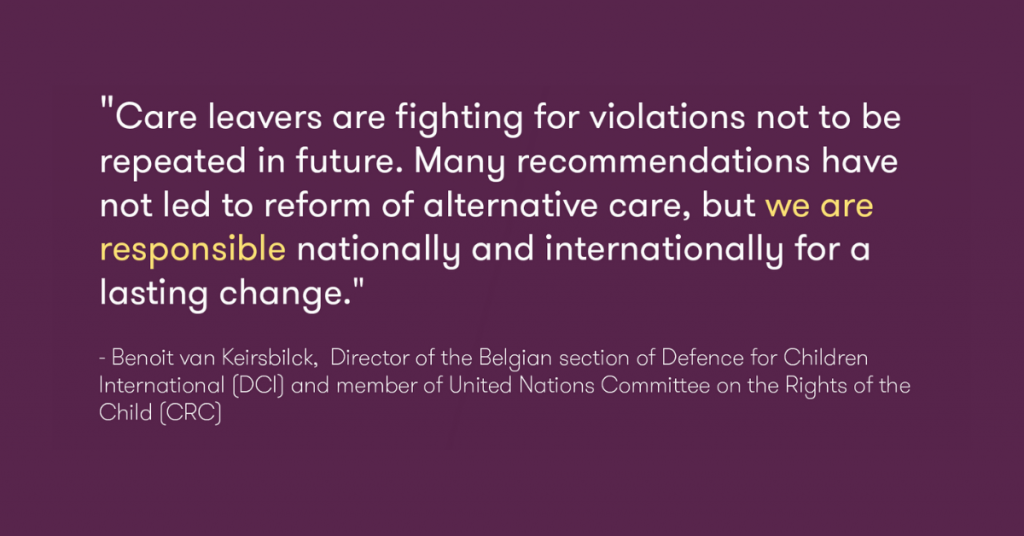
What’s next?
We will work with other NGOs to call for members of the UN Committee on the Rights of the Child and the UN Committee on the Rights of Persons with Disabilities to engage in dialogue about alternative care and come up with joint language and guidance for States related to alternative care, care reform and institutionalisation of children.
The DGD should be understood as a process, rather than a single event. Over the last year and a half, we have strengthened collaboration with civil society, kept up global momentum for care reform and invested in the meaningful participation of children and young people with care experience from all over the world. This process doesn’t end now – we will continue engaging with the UN human rights treaty bodies (particularly the Committee on the Rights of the Child and the Committee on the Rights of Persons with Disabilities) to ensure our messages are delivered to UN member states through the UN treaty bodies reporting system. We will also channel the positive energy created by the DGD into more permanent frameworks for joint advocacy actions, such as the Collaborative Platform.
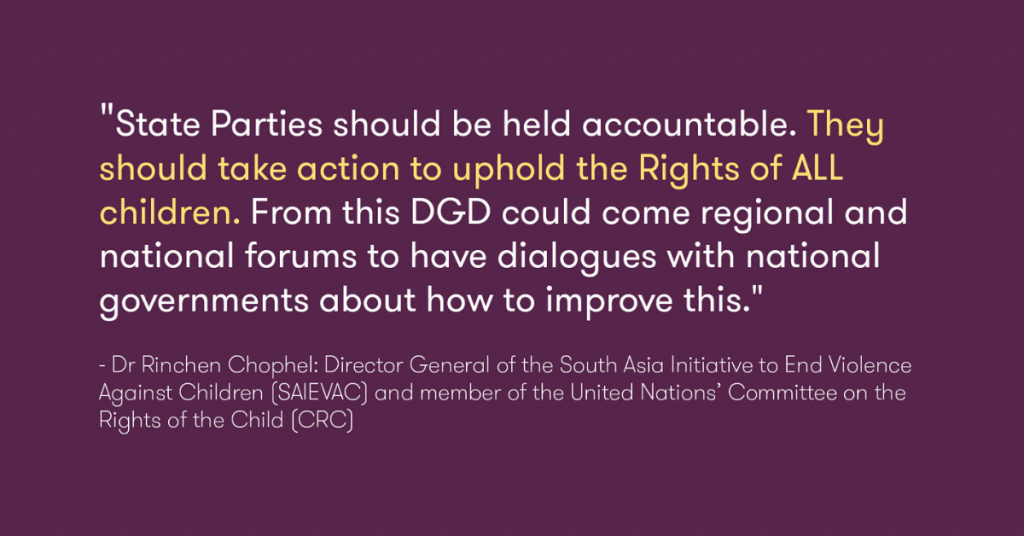
Links:
United Nations: Committee on the Rights of the Child
The post “Put the money where the love is” Reflections on the UN Day of General Discussion appeared first on Hope and Homes for Children.
]]>The post UN Day of General Discussion: Our recommendations appeared first on Hope and Homes for Children.
]]>The Day of General Discussion represents an opportunity for the UN CRC Committee to send a clear message of renewed urgency to support children in their families and communities, given the challenges exposed by the Covid-19 pandemic. As a follow-up of the DGD, we are calling on the UN to make recommendations to countries with one voice. It is a chance to offer unified, contemporary, and compelling guidance on the ultimate goal of care reform and the best process to achieve it.
Read a summary of our recommendations below. Or go straight to our full written submission here: ‘Children’s Rights and Alternative Care.’
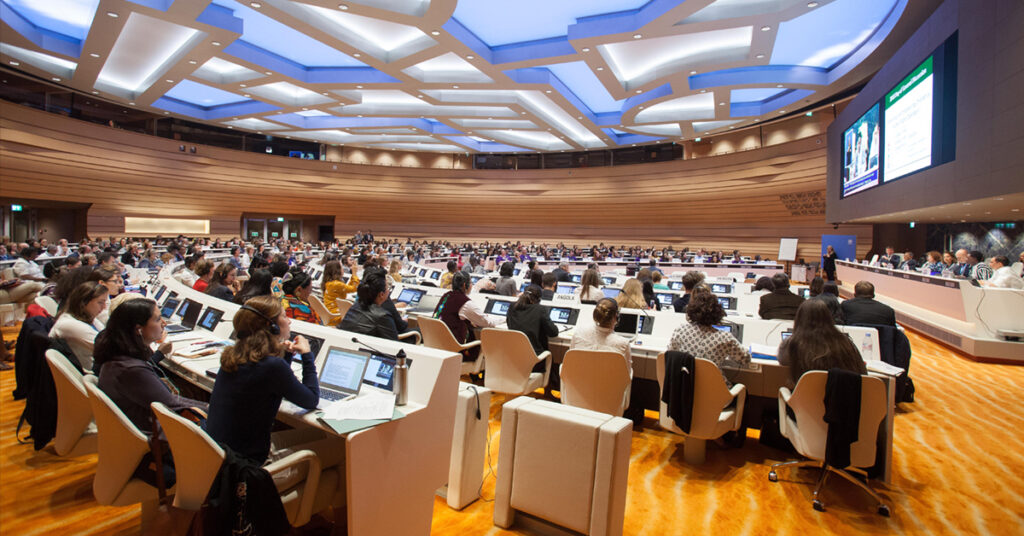
The need for enhanced focus, coherence and collaboration.
Over the last decade, there has been significant international progress towards care reform, as well as an evolving understanding of its importance in delivering the ‘leave no one behind’ commitments in the UN’s Sustainable Development Goals (SDGs). At Hope and Homes for Children, we know from our work on four continents, and from the work of many other organisations and governments around the world, that care reform is achievable.
Alongside over 250 civil society organisations worldwide and UNICEF, Hope and Homes for Children contributed to draft a set of Key Recommendations ahead of the 2019 UN General Assembly (UNGA) Resolution on the Rights of the Child focusing on children without parental care, which detailed civil society’s ambitious agenda for care reform.
However, despite progress, in many countries implementation of care reform still lags behind while the COVID-19 pandemic risks turning the clock back. What’s more, the consequences of the pandemic have had devastating effects on children and families, exacerbating existing weaknesses in states care and child protections systems.
Globally, there is also an urgent need for enhanced coherence and collaboration to better define and articulate the ultimate goal of care reform as well as the practical steps needed to transform care systems and deliver the rights of children in alternative care. There is to secure existing progress and effectively support marginalised children around the world.
The role of the Day of General Discussion
The Day of General Discussion represents an opportunity for the UN CRC Committee to send a clear message about supporting children in their families and communities, promoting the transformation of national care systems and phasing out of institutionalisation. We are calling on the UN human rights mechanisms to speak with one voice, offering states unified, compelling guidance on care reform and the best process to achieve it. Now especially there is a renewed urgency, given the challenges exposed by the pandemic.
Whilst it is increasingly clear that successful care reform also unlocks some of the SDGs considered hardest to progress, the issue remains side-lined in global initiatives intended to tackle poverty, grow economies and build community resilience – including as a response to the pandemic. By asserting the importance of this issue, the DGD on Child Rights and Alternative Care can also be a stepping stone towards including care reform in future global initiatives.
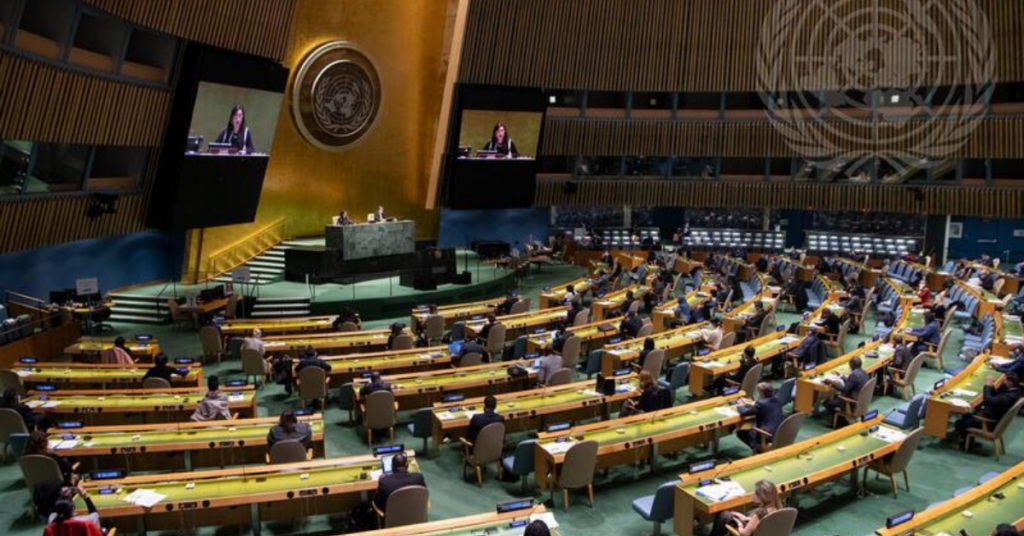
Our recommendations
The pandemic is leading many to think creatively about how we should rebuild our societies in a way which promotes equity and places higher value on care, protection and public service. No child should be left behind in this process. The planning for the recovery from COVID-19 should be a catalyst to build and fund stronger child protection and care systems.
Here are our key recommendations for governments, stakeholders, donors and UN Treaty Bodies:
- Transformation plans: Recognise institutionalisation as a harmful practice that incentivises the separation of children from their parents, caregivers and communities. And develop national action plans and regional or global initiatives for the transformation of care systems.
- Reunite or build new families: Ensure that all children currently institutionalised are reunited with existing family or found safe and nurturing families.
- Root causes: Tackle the root causes of child-family separation by investing in support to families in need or struggling economically, the development of community-based services, and promote national adoption, foster care and community support structures.
- Fund transformation to family-based care: Ensure and pledge that no national or international funding mechanisms can be used to support institutionalisation. Use recovery and reconstruction resources to promote a transformation of the child protection and care system to one that supports families, not institutions.
- Child participation: Ensure meaningful participation of children without parental or family care and care-leavers in decisions or policies pertaining to their care.
To read our full list of recommendations, please see our written submission to the UN Convention on the Rights of the Child Day of General Discussion here: ‘Children’s Rights and Alternative Care’.
You can also read three submissions that we have been directly involved in shaping here:
The post UN Day of General Discussion: Our recommendations appeared first on Hope and Homes for Children.
]]>